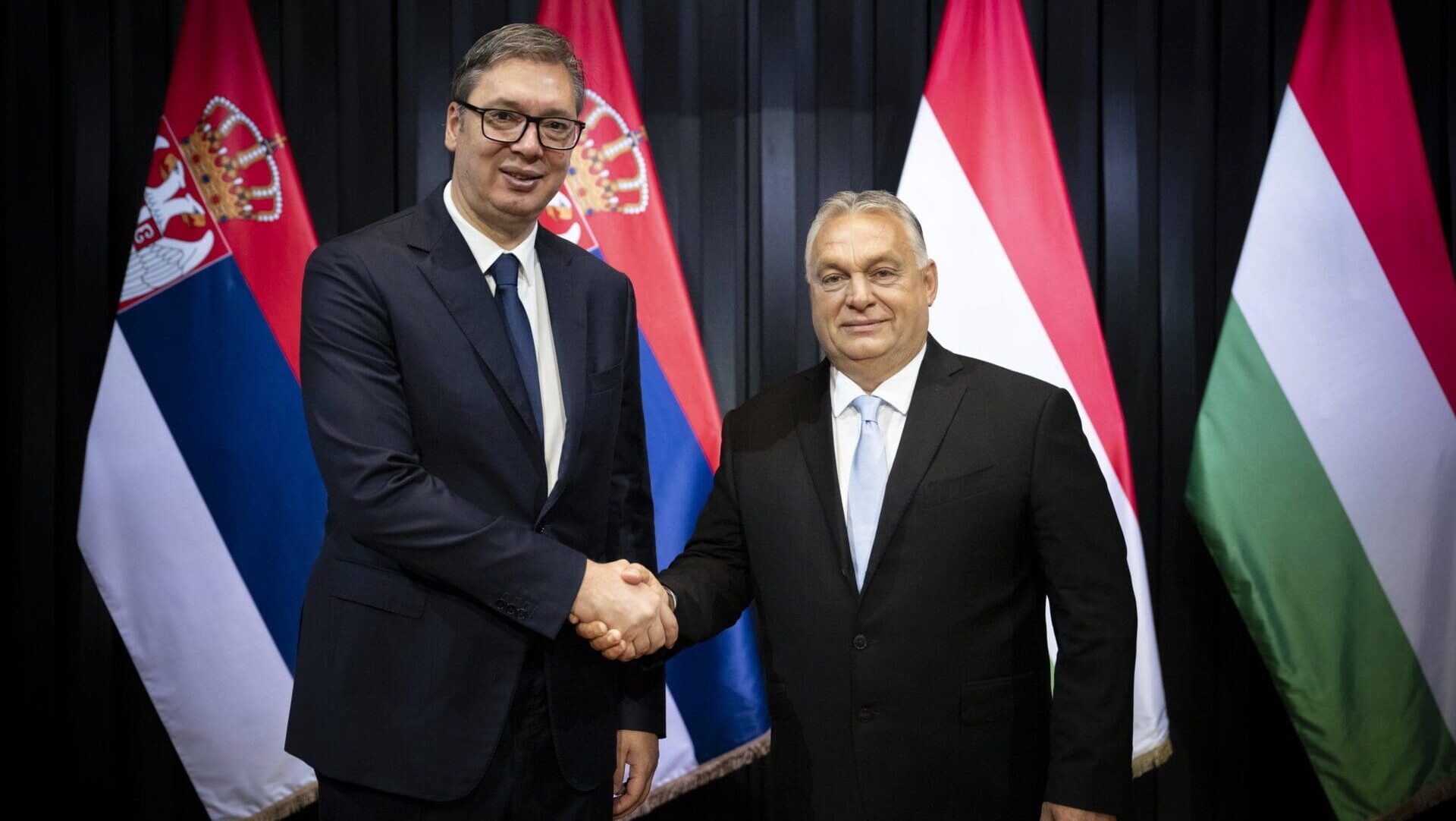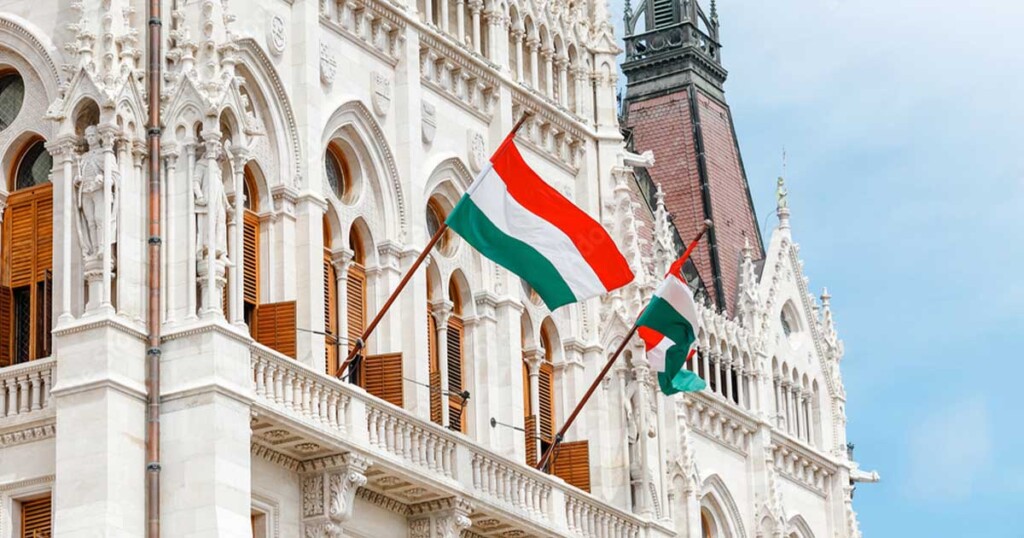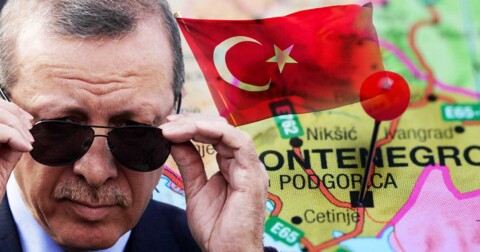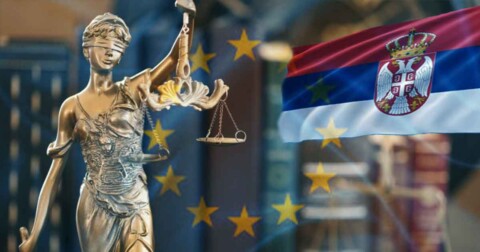On April 14, 2025, Hungary adopted the 15th amendment to the Constitution, according to which the right of children to moral, physical, and spiritual development takes precedence over all other rights, except the right to life, including the right to peaceful assembly. The amendment, which required a two-thirds majority, was adopted with 140 votes “for” and 21 “against.” It was proposed by the ruling Fidesz-KDNP coalition led by Prime Minister Viktor Orbán. This law puts an end to all forms of LGBTQ+ propaganda, public gatherings, school and video content, including the holding of the “Budapest Pride.” Among other things, the law allows authorities to use facial recognition tools to identify participants in banned events, such as Pride.
It is also noteworthy that the Constitution now allows for the revocation of Hungarian citizenship from dual citizens living in countries outside the European Economic Area, if the authorities assess that they pose a threat to national and public security or to public order and peace.
These changes, as expected, provoked enormous discontent among members of the opposition. Ahead of the vote, opposition members and the NGO sector organized mass protests. Nevertheless, the law was passed and, unsurprisingly, met with harsh criticism from the Collective West.
A 15-YEAR PROCESS
Dávid Bedő, a member of the opposition party Momentum who took part in an attempted blockade, stated before the vote that Orbán and Fidesz had been dismantling democracy and the rule of law for 15 years, and that this process had accelerated over the past two to three months. Orbán’s critic is, in fact, correct. The process of returning to national identity and traditional values predates the new law.
Hungarian Prime Minister Viktor Orbán began a systematic purge of the influence of George Soros and other NGOs funded by foreign states back in 2017, when it became clear that these organizations were not dealing with “human rights” and democracy, but were instead engaged in political engineering. That year, the Hungarian Parliament adopted the so-called “Stop Soros” law, which restricted the work of NGOs financed from abroad and imposed very strict conditions on their activities. The law required organizations receiving more than €24,000 annually from abroad to register as “foreign agents,” which sparked mass protests among liberal circles. However, public opinion polls showed that the law had overwhelming support among the majority of citizens.

THE PURGE OF THE “INDEPENDENT”
The protests lasted several weeks. In addition to the opposition, which championed neoliberal values, and so-called neo-communists who paradoxically fought “for democracy,” the academic community also played a major role in anti-Orbán sentiment. The NGO sector had first recruited en masse from among the intellectual elite, university professors, students, the judiciary, and the media.
The system had been built up over years, following a blueprint identical to that used in Serbia. Western foundations invested in education, funded studies abroad, donated to universities, and organized seminars for judges and prosecutors through various professional NGOs. The result was the emergence of hundreds of “independent experts” who defended the interests of foreign embassies—but not those of their own country. Orbán recognized the danger.
The climax of the conflict between the two camps—pro-state and anti-state—was the expulsion of the renowned Central European University from Budapest, an institution founded by George Soros. According to the government, the university had become a hub for spreading “globalist ideology” and anti-national policies. By 2019, CEU had closed its campus in Hungary and relocated to a neighboring country—Austria.
That was the moment when not only the moral and spiritual revival of the Hungarian people began, but also the adoption of a clear course toward sound policy in this neighboring country—sovereign enough to resist the influence of Brussels and conduct an independent foreign policy.
Is Serbia today where Hungary was in 2017?
MORE RIGHTS, MORE VIOLENCE, MORE DEMOCRACY
While gender ideology is quietly being introduced into schools in Serbia, gay parades are being held without concern, and the Serbian people are demonized through a history rewritten in NGO workshops—and all of this is happening amid months of protests led by the pro-Western opposition and members of the NGO sector, without any intervention from the police or prosecution despite numerous incidents caused by the demonstrators—Europe and the protest participants are demanding more: more rights to violence, more democracy, louder voices as they promote what is slowly dying out in the cradle of all deviations—America.
In November 2024, the Socialist Movement led by Aleksandar Vulin submitted a draft law on foreign agents to the National Assembly. This draft law on the registry of foreign influence agents—or members of the civil sector working on behalf of foreign services—aims to regulate the work of non-governmental organizations that are largely funded from abroad.
According to the draft, modeled after the FARA Act adopted in the U.S. back in 1938, “foreign influence agents” are considered to be all associations and non-profit organizations predominantly financed or otherwise supported by foreign states, their institutions, international and foreign organizations or embassies, non-Serbian citizens, or registered NGOs funded from abroad. “Predominantly financed” is defined as receiving more than half of total funding in the past year from the above-mentioned entities.
WHAT’S DICTATORIAL ABOUT THAT?
The draft law stipulates that every organization registered as a foreign influence agent—in a registry to be maintained by the Ministry of Justice—must clearly label all of its public appearances, printed and electronic materials, and online content with a notice stating that it is a “foreign influence agent.” In the case of non-compliance, fines are foreseen for both organizations and responsible individuals, along with the possibility of a work ban and even criminal charges.
Despite the fact that the FARA law has existed in the U.S. for over 70 years, and that similar legal provisions are applied across Europe, as well as in Israel and Australia, the West has labeled this proposal by the Socialist Movement as a deeply hostile act toward EU countries and the Collective West in general. The measures were called repressive, and Serbia’s government was branded as dictatorial and intent on suppressing free society.
Serbia’s President, Aleksandar Vučić, under immense pressure from the NGO sector, stated that he would not allow this law to be introduced in Serbia. The public, however, has not welcomed this balancing stance by the Serbian president. Considering the latest opinion polls indicating that more Serbs support an alliance with BRICS than with the European Union, support for this law seems highly likely.

A STEP BEHIND HUNGARY
Unfortunately, Serbia has not yet reached the point Hungary was at in 2017. The moment when Viktor Orbán began this campaign was marked by the country’s economic and political stability. In a way, Hungary had already demonstrated a clear stance toward EU interference in internal affairs and, unlike other member states, was—economically speaking—largely independent, making it less susceptible to blackmail. This contrasts with Serbia, which, despite such pressure, continues to conduct exceptionally well-balanced foreign policy and maintains good relations with both East and West.
Hungary was also part of the Collective West, so the meddling of the NGO sector was not as directly opposed to national interests as it is in Serbia today. Most importantly, Hungary made this move eight years ago.
Another key difference: at the time, the situation in Hungary was calm, unlike in Serbia, where protests led by the NGO sector and the pro-Western opposition have been ongoing for three years without interruption. The proposal for the law on foreign agents emerged at the height of this internal crisis. That may in fact serve as a good incentive to adopt the law—because in doing so, the majority of those behind the blockades and protests would be subject to criminal prosecution, not only as foreign agents but potentially as terrorists working against the constitutional order.
SERBIA MUST NOT HESITATE
Ultimately, this is not just about holding pride parades, gay rights, or other anti-national NGO projects—but about the survival of the state itself. We will either have a state, or we won’t.
Hungary made a clear decision on this matter eight years ago, when it realized that it would never be free or sovereign as long as scholarship recipients of foreign embassies were writing its laws and teaching its children the values of a destructive system. Official Budapest passed a law that cleansed the system and, most importantly, reinforced the ruling regime and restored the people’s trust in national politics.
Serbia hesitates. The proposed law on foreign agents could represent a first step toward stabilizing the situation. If the state does not back down and abandons neither the law nor its purpose, it will show not only that it respects itself, but that it trusts its own people.
There has never been a better time for this law. Never before has the structure of foreign influence been so clearly defined and publicly revealed. Today, we know which media are under foreign control, who is leading the protests, who funds the campaigns, who meets in embassies, and who coordinates the chaos. Nothing is hidden in the shadows anymore. This is a unique opportunity to finally call things by their proper names and pass laws that will cleanse Serbia from within.





